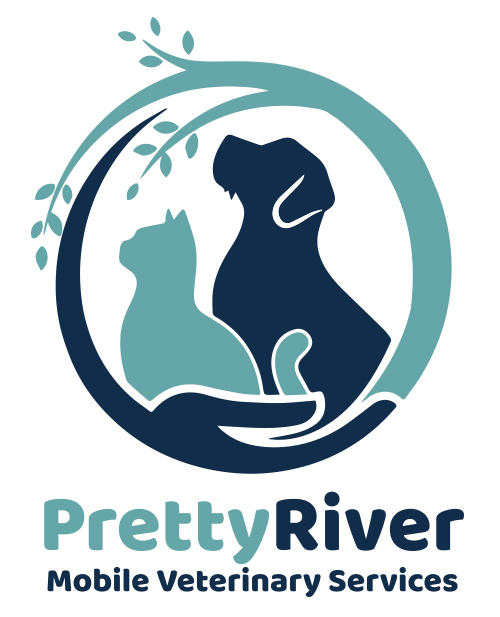Behavioral Health Medication Poisoning
What is behavioral health medication poisoning?
 Behavioral health medications are used in animals and humans. They include antidepressants, atypical antidepressants, antipsychotics, and amphetamines. Dogs and cats often require lower doses of these medications than humans and are sensitive to overdoses. As such, when a dog or cat gets into human doses of these medications or a pill vial of their own medication, behavioral health medication poisoning can occur.
Behavioral health medications are used in animals and humans. They include antidepressants, atypical antidepressants, antipsychotics, and amphetamines. Dogs and cats often require lower doses of these medications than humans and are sensitive to overdoses. As such, when a dog or cat gets into human doses of these medications or a pill vial of their own medication, behavioral health medication poisoning can occur.
- Antidepressants include selective serotonin reuptake inhibitors (SSRIs), serotonin and norepinephrine reuptake inhibitors (SNRIs), and tricyclic antidepressants (TCAs). Antidepressants are medications that affect the usage and reuptake of two neurotransmitters in the brain: serotonin and norepinephrine.
- Atypical antidepressants also affect levels and function of neurotransmitters in the brain. There are numerous medications in this class, with a variety of mechanisms of effect.
- Antipsychotics are medications used to control psychosis and some signs of dementia. They work by affecting levels of, or blocking action of, a variety of brain chemicals and transmitters such as dopamine, serotonin, noradrenaline, and glutamate.
- Amphetamine stimulant-type medications are often used to treat human attention deficit hyperactivity disorder (ADHD) and a few other conditions. There are a variety of formulations, including amphetamine, dextroamphetamine, lisdexamfetamine, and mixed amphetamine salts. These medications have stimulant properties that work in the central nervous system/brain but also have effects on the cardiovascular system and gastrointestinal (GI) tract.
Though some of these medications are used therapeutically in dogs and cats for anxiety, aggression, compulsive behaviors, inappropriate urination, certain phobias, and other behavioral abnormalities, they can cause side effects, even at therapeutic or low doses.
As these are all prescription medications, not available over the counter, poisoning from these medications most often occurs when a dog or cat gets into their own or their owner’s supply of medications.
What are the clinical signs of behavioral health medication poisoning?
Signs of behavioral health medication poisoning can occur within minutes or can take up to 12 hours to begin. Signs typically involve the GI tract, cardiovascular system, or central nervous system. GI upset, especially drooling, can occur early on. Signs can progress to abnormal heart rate/rhythm, tremors, seizures, agitation, fever, and decreased alertness. Behavioral changes, such as agitation, disorientation, drowsiness, or aggression, can be seen.
"If you suspect your pet has ingested a behavioral health medication that was not prescribed to them or that was above their prescribed dose, immediately call your veterinarian or Pet Poison Helpline."
Serotonin syndrome is a potentially life-threatening condition caused by excessive serotonin stimulation in the nervous system, which can be common in overdoses of many behavioral health medications. Serotonin syndrome can present with any or all of the above signs, though fever, disorientation, and vocalization are especially common.
If you suspect your pet has ingested a behavioral health medication that was not prescribed to them or that was above their prescribed dose, immediately call your veterinarian or Pet Poison Helpline, a 24/7 animal poison control center, at 1-800-213-6680.
How is behavioral health medication poisoning diagnosed?
Behavioral health medication poisoning is diagnosed by a combination of clinical signs, physical exam findings, and history of possible or confirmed exposure. For this reason, the veterinarian often asks what medications may have been present in the pet’s environment. Blood testing for these medications is not readily available in veterinary clinics. If necessary, blood testing can be submitted to an outside lab to test for levels of a specific medication, but results can take several days or more to return.
How is behavioral health medication poisoning treated?
If a potentially toxic dose of a behavioral health medication is ingested, decontamination may be recommended, and may include inducing vomiting and administering medical-grade activated charcoal (one or more doses, depending on the specific medication ingested). If signs of poisoning are already present, decontamination may no longer be recommended due to safety concerns.
"Hospitalized care is typically required if signs of poisoning are present or expected."
Treatment for signs of behavioral health medication poisoning is specific to the clinical signs present. Hospitalized care is typically required if signs of poisoning are present or expected. Frequent monitoring of heart rate, blood pressure, body temperature, and agitation or sedation level is often required.
Treatments may include anti-nausea medication, intravenous fluids, sedation, medications to control heart rate and blood pressure, medication for tremors, anticonvulsants (anti-seizure medication), and medication to control serotonin syndrome. Even with early and appropriate treatment, signs of behavioral health medication poisoning can be severe and sometimes life threatening.
What is the prognosis for behavioral health medication poisoning?
The prognosis for recovery from behavioral health medication poisoning varies depending on the dose ingested and how quickly treatment is obtained. While many pets who ingest behavioral health medications can recover, severe cases can be life threatening.
With small to moderate doses ingested, signs may resolve in 12–24 hours, while larger doses may require up to 3–4 days for signs to fully resolve. Pets can often experience a full recovery from ingesting behavioral health medications, though early and appropriate treatment is vital.
 Pet Poison Helpline, an animal poison control center based out of Minneapolis, MN, is available 24/7 for pet owners and veterinary professionals that require assistance treating a potentially poisoned pet. The staff provides treatment advice for poisoning cases of all species, including dogs, cats, birds, small mammals, large animals, and exotic species. As the most cost-effective option for animal poison control care, Pet Poison Helpline’s per incident fee includes follow-up consultations for the duration of the poison case. Pet Poison Helpline is available in North America by calling 800-213-6680. Additional information can be found online at www.petpoisonhelpline.com.
Pet Poison Helpline, an animal poison control center based out of Minneapolis, MN, is available 24/7 for pet owners and veterinary professionals that require assistance treating a potentially poisoned pet. The staff provides treatment advice for poisoning cases of all species, including dogs, cats, birds, small mammals, large animals, and exotic species. As the most cost-effective option for animal poison control care, Pet Poison Helpline’s per incident fee includes follow-up consultations for the duration of the poison case. Pet Poison Helpline is available in North America by calling 800-213-6680. Additional information can be found online at www.petpoisonhelpline.com.
© Copyright 2025 LifeLearn Inc. Used and/or modified with permission under license. This content written by LifeLearn Animal Health (LifeLearn Inc.) is licensed to this practice for the personal use of our clients. Any copying, printing or further distribution is prohibited without the express written consent of LifeLearn. This content does not contain all available information for any referenced medications and has not been reviewed by the FDA Center for Veterinary Medicine, or Health Canada Veterinary Drugs Directorate. This content may help answer commonly asked questions, but is not a substitute for medical advice, or a proper consultation and/or clinical examination of your pet by a veterinarian. Please contact your veterinarian if you have any questions or concerns about your pet’s health. Created on Dec 13, 2023.





